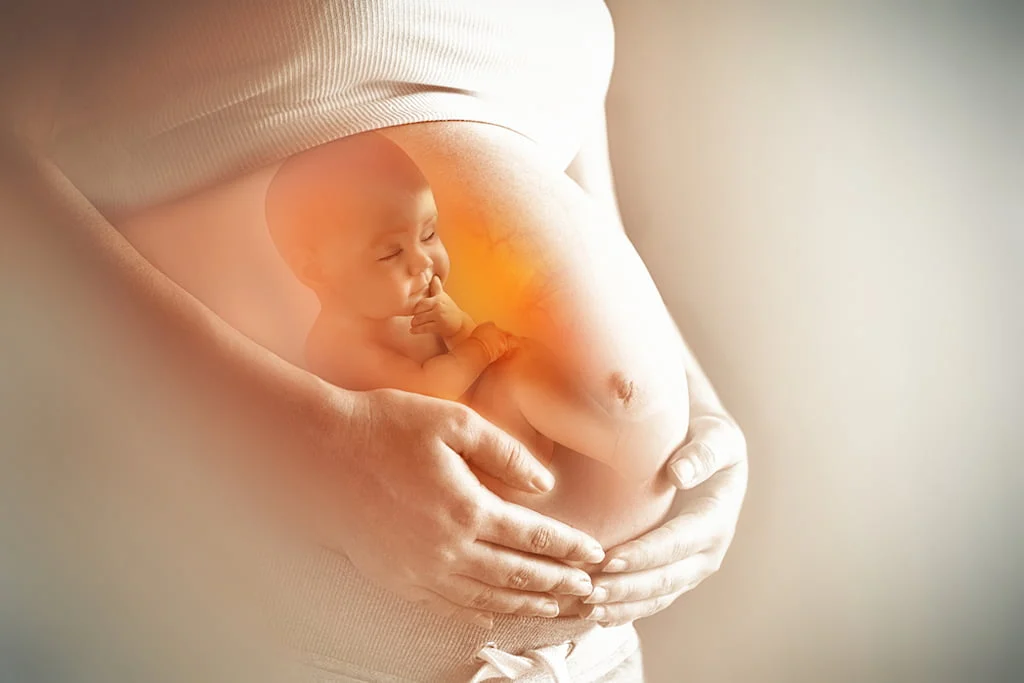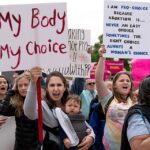Abortion
Activists use polling data to claim America is pro-abortion. Here’s why that’s misleading
Since the Dobbs decision, abortion activists have rushed to make the case that America is a fundamentally pro-choice country; that every poll clearly says this; and that Dobbs was a catastrophic example of judicial overreach bordering on tyranny.
For years, Gallup polling on abortion showed something quite different – that Americans are fairly evenly split on abortion and had been for several decades, and that large majorities rejected the extremist position of both the abortion movement and Roe v. Wade. Much of the polling was confused by the fact that Americans didn’t actually know what the Roe ruling said, and thus would often indicate both support for Roe as well as abortion restrictions disallowed under Roe.
But it is essential for abortion activists to make the case that a super-majority of Americans support abortion on demand because the loss of Roe was devastating in more ways than one. The abortion movement didn’t simply lose abortion access in a dozen or more states; they lost the myth of inevitability that had fueled their cause for so long. According to progressive politicians, abortion regimes are inevitable. What is done cannot be undone. “We’re never going back!” as angry abortion protestors would chant at feminist marches. “Get over it – we won!” abortion activists would often sneer at pro-lifers. When Roe fell, inevitability – and invincibility – collapsed.
On the other hand, it is clearly true that terms like “pro-life” and “pro-choice” have been very imprecise (and close to useless) metrics for determining what Americans actually believe about abortion. As Freddie de Boer observed, there are plenty of people who call themselves pro-life and claim to hate abortion but still want it to be available – just in case. Abortion rights, he noted, are a “revealed preference” – one that many do not want to confess to but is revealed by their voting patterns.
These are people, one of my pro-life colleagues once noted dryly, that oppose all abortions except their own – “pro-life except in the case of my abortion.” Samuel D. James also noted that views on abortion get complicated during changes in environment, such as the move from one’s hometown to university (his column on this, “Proximity and Plausibility,” is well worth reading).
That said, it is important that pro-lifers do not react to the non-stop media mantra about terrible polling with a sense of despair or resignation. Polling, as one political analyst once noted, is not just done to gauge public opinion, but to shape it. People like to be on the “winning” side, and thus media pollsters have a vested interest in reclaiming the abortion movement’s shattered myth of inevitability. Over at National Review, statistician Dr. Michael New notes that the abortion poll in the Wall Street Journal last month is an example of this narrative-shaping. The headline stated that “Support for Abortion Access is Near Record.” But, New notes, that’s not quite what the polling data actually says:
Indeed, the WSJ article fails to mention that support for legal abortion slightly decreased since May 2022 – the last time that the WSJ and NORC polled people about abortion. The percentage of people who felt that a pregnant women should be able to obtain a legal abortion ‘for any reason’ fell from 57 percent to 55 percent between May 2022 and October 2023. In short, this poll shows the June 2022 Dobbs decision had very little impact on public attitudes toward abortion.
READ THE REST OF THIS COLUMN HERE









There’s a grain of truth here. Many people that say they’re “personally opposed” but in favour of abortion on demand really mean that they can’t answer the overwhelming case against abortion yet want the option available just in case something happens to them or someone they care about. And it’s true that being part of what’s essentially a prohibitionist movement puts pro-life people at a disadvantage, as the only people allowed to vote on abortion are those that stand to benefit from the practice (or already have). Of course this is a huge improvement from pre-Dobbs, when a cabal of nine unelected lawyers declared abortion to be legal in all 50 states, but it’s still an uphill battle. Being part of a religion that mandates its followers to love their neighbours (especially the “least of these”) and put them before oneself makes people more receptive to the pro-life position, but Christianity (and religion in general) has been steadily declining in America over the past several decades. So that won’t be enough to level the playing field.
But the overarching claim, that people opposed to abortion on demand are only one unplanned pregnancy away from being secretly pro-choice, isn’t true just because some pseudo-intellectual on Substack says that it is (politicians are a different story, of course, and I won’t get started on premarital sex). The basis for his claim (much like Joyce ‘let no fetus defeat us’ Arthur’s classic screed) is literally “my uncle works at Planned Parenthood”. Someone that advocates against abortion but goes on to have an abortion or assists/pressures someone into having one is as much a hypocrite as a senator that rails against gay marriage while playing footsie with other men in the restroom, or a politician obsessed with the “climate emergency” that flies two private jets wherever he goes. But the data we have (albeit a bit dated) shows that people generally practice what they preach. While both sides have people of every religious affiliation, it’s still a pretty good proxy for support for legalized abortion. Evangelical Christians, on average, are much more pro-life than the general population. People with no religious affiliation are much less pro-life than the general population. The CDC data shows that Evangelical Christians both have a lower abortion rate and are less likely to abort when faced with an unplanned pregnancy than the general population. Likewise, women with no religious affiliation have higher abortion rates than the general population (three times that of Evangelicals) and are more likely to abort when faced with an unintended pregnancy (over 50%).
https://europepmc.org/backend/ptpmcrender.fcgi?accid=PMC3338192&blobtype=pdf
https://www.liveaction.org/news/chart-u-s-abortion-rate-highest-among-non-religious-lowest-with-evangelicals/